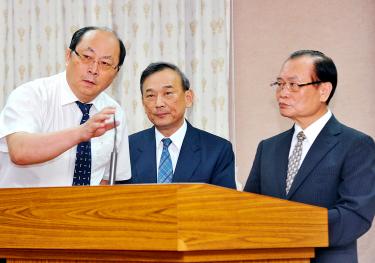DHARAMSHALA, September 26: Jailed Tibetan monk Lama Jigme (aka Labrang Jigme, Jigme Gyatso and Akhu Jigme) has told Chinese police guards, in the presence of his brother, that he will gladly accept, even the death sentence, if found guilty.
“If you think that I am a criminal, send me to court for a trial. If I really committed a crime, well then I will gladly accept my sentence, even if it is the death sentence,” Lama Jigme was quoted as saying by his elder brother Sonam Tsering in an oral testimony published by prominent Tibetan blogger Woeser on August 12.
News
|
|||
|
More Articles...
|
|||
|
|
|||
| Page 955 of 1486 |
Newsflash
|
The air force yesterday confirmed that two Chinese jets — a J-10 and a J-11 — flew into the nation’s air defense identification zone (ADIZ) before being chased away by its patrolling aircraft. |














